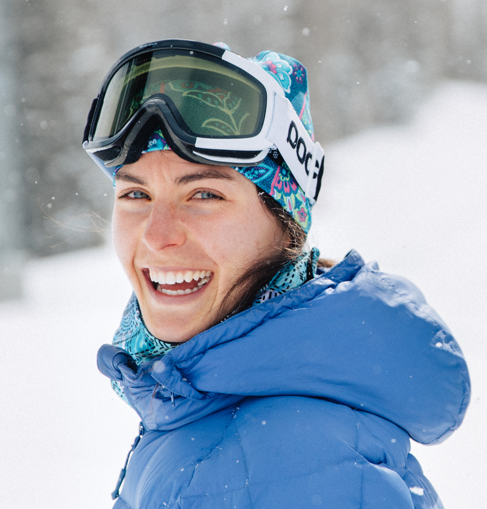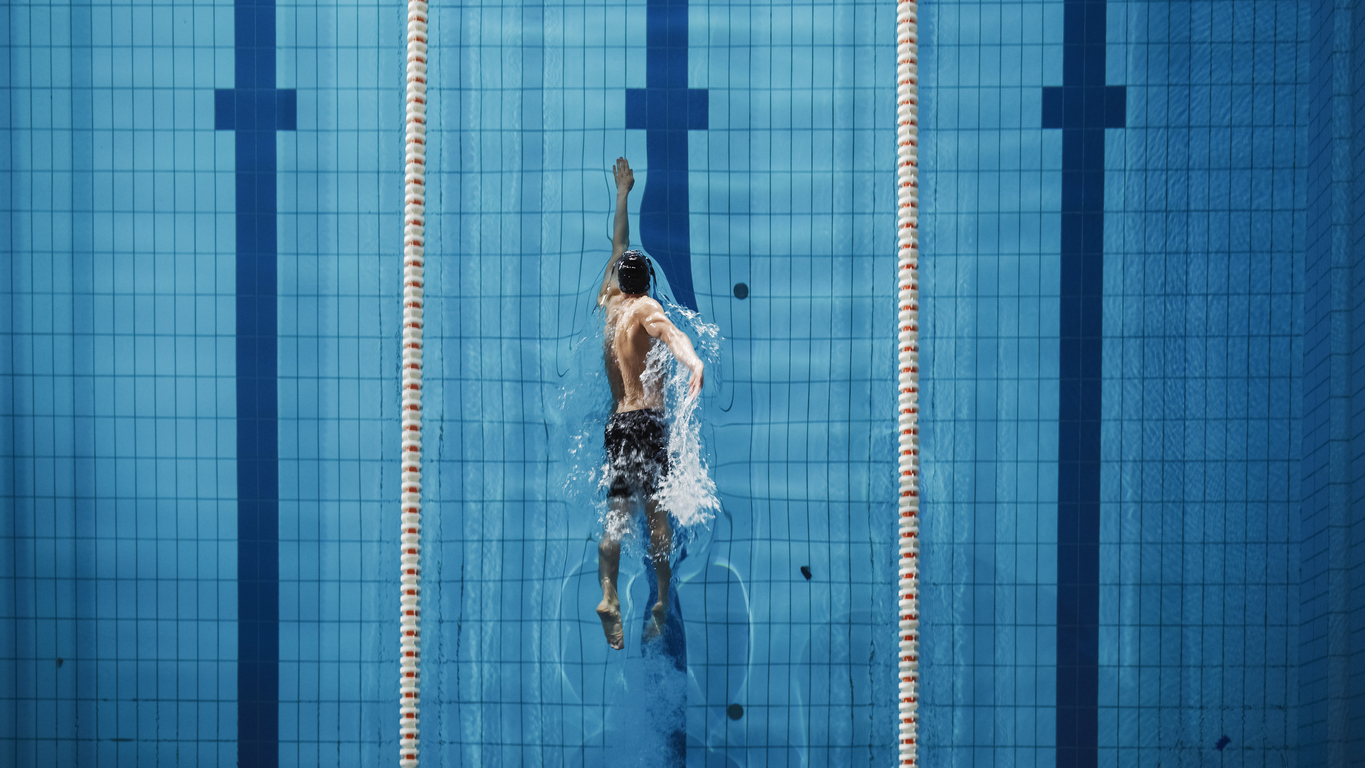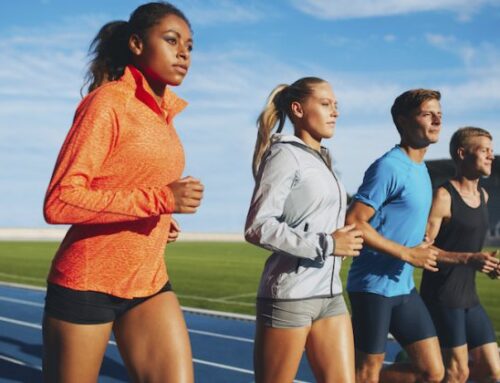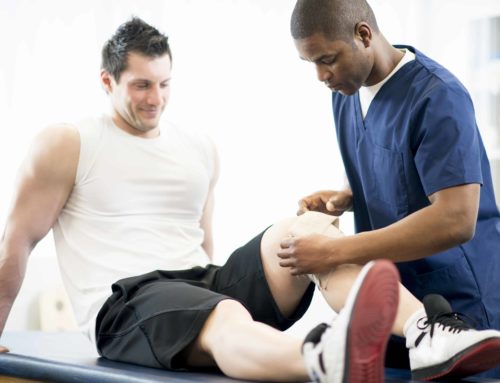A perfect storm
Research has shown that the pandemic has magnified the prevalence of eating disorders across all demographics. There isn’t a group that has been spared including competitive athletes.
An inability to access training facilities, disrupted routines, and lack of control created a “perfect storm” for athletes to begin or further their eating disorder related behaviors. The impact of the pandemic will undoubtedly have lasting effects on the mental health of many people – athletes included.
What impacts athletes seeking eating disorder treatment?
The experience of athletes is unique as they are managing multiple roles. Not only are they navigating the stressors that come with their athletic pursuits, but they’re also managing the responsibilities and inevitable challenges that come with daily life and other identities that they may hold.
We know that athletes experience stereotypes, stigma, and other barriers to eating disorder treatment causing many cases to go undetected just the same as within the general population.
Unlike the general population however, competitive athletes tend to have a unique set of predispositions and challenges that can impact eating disorder treatment. Thus there is a consequential need for an athlete-specific alternative pathway that allows folks of a common community to come together to work toward recovery.
GOALS: Walden’s athlete-specific eating disorder treatment program
Walden’s GOALS program is a virtual intensive outpatient eating disorder program designed specifically for competitive adult athletes. The program was created using evidence-based research from the fields of mental health, nutrition, sport psychology, and exercise science.
The curriculum is based on five pillars: fueling for sport and life, eating competence, body esteem, recovery skills, and resiliency. Athletes enrolled in the GOALS program meet three nights a week for three hours to cover the 6-week-long curriculum. Each individual in the GOALS program receives individual mental health and nutritional counseling, group education, and exposure to essential skills needed to thrive both in and out of sport.
Based on recent research, athlete-specific eating disorder treatment has positive and measurable effects of decreasing eating disorder behavioral risks, eating pathology, and increasing eating competence. Furthermore, when asked about participating in the GOALS Program, clients felt that the program was customized and addressed the unique needs of athletes. This gleaned more meaningful and desired treatment outcomes for the athletes.
Don’t be afraid to reach out
We know finding eating disorder treatment for an athlete can be tough. Walden is here for you. If you are concerned that you, or a loved one, may have an eating disorder, please reach out by completing the form on this page or email us at intake_coordinators@waldenbehavioralcare.com.
 Kelsey A. Varzeas, Ed.M., CMPC, (she/her/hers) is a clinician with Walden Behavioral Care’s GOALS program. In her work, she acknowledges the unique social, cultural, physical, and mental stressors that athletes face and aims to unite the separation between the sport and clinical worlds. Kelsey feels extremely passionate about addressing anti-fat bias, size-ism, body oppression, and eating disorder awareness in the current culture and sporting world. Kelsey is a Ph.D. candidate at The Ohio State University where her dissertation research explores stress, coping, and body image for female collegiate athletes. She received her Master of Education degree in Counseling with a specialization in Sport and Performance Psychology from Boston University. Upon graduation from Boston University, Kelsey became a Certified Mental Performance Consultant (CMPC), which demonstrates the highest standards of professional practice for sport and performance psychology consultants.
Kelsey A. Varzeas, Ed.M., CMPC, (she/her/hers) is a clinician with Walden Behavioral Care’s GOALS program. In her work, she acknowledges the unique social, cultural, physical, and mental stressors that athletes face and aims to unite the separation between the sport and clinical worlds. Kelsey feels extremely passionate about addressing anti-fat bias, size-ism, body oppression, and eating disorder awareness in the current culture and sporting world. Kelsey is a Ph.D. candidate at The Ohio State University where her dissertation research explores stress, coping, and body image for female collegiate athletes. She received her Master of Education degree in Counseling with a specialization in Sport and Performance Psychology from Boston University. Upon graduation from Boston University, Kelsey became a Certified Mental Performance Consultant (CMPC), which demonstrates the highest standards of professional practice for sport and performance psychology consultants.
*This blog post does not necessarily represent the views of Walden Behavioral Care and its management. The Walden Blog is meant to represent a broad variety of opinions relating to eating disorders and their treatment.
References
Arthur-Cameselle, J., & Quatromoni, P.A. (2011). Factors related to the onset of eating disorders reported by female collegiate athletes. Sport Psychologist, 25(1), 1-17.
https://doi.org/10.1123/tsp.25.1.1
Arthur-Cameselle, J., Sossin, K., Quatromoni, P.A. (2017). A qualitative analysis of factors
related to eating disorder onset in female athletes and non-athletes. Eating Disorders,
25(3), 199-215. https://doi.org/10.1080/10640266.2016.1258940
Bogart, N. (2020, October 19). ‘Perfect storm’: Dietitians warn of eating disorders in young
athletes as COVID-19 disrupts training. CTV News.
https://www.ctvnews.ca/health/coronavirus/perfect-storm-dietitians-warn-of-eating- disorders-in-young-athletes-as-covid-19-disrupts-training-1.5151337
Bratland-Sanda, S., & Sundgot-Borgen, J. (2013). Eating disorders in athletes: Overview of
prevalence, risk factors and recommendations for prevention and treatment. European
Journal of Sport Science, 13(5), 499-508.
https://doi.org/10.1080/17461391.2012.740504
de Bruin, A.P. (2017). Athletes with eating disorder symptomology, a specific population with
specific needs. Current Opinion in Psychology, 16, 148-153.
https://doi.org/10.1016/j.copsyc.2017.05.009
Deloitte Access Economics. (2020, June). The social and economic cost of eating disorders in
the United States of America: A report for the Strategic Training Initiative for the
Prevention of Eating Disorders and the Academy for Eating Disorders. Harvard T.H.
Chan School of Public Health. https://www.hsph.harvard.edu/striped/report-economic- costs-of-eating-disorders/
DiBartolo, P.M., & Shaffer, C. (2002). A comparison of female college athletes and nonathletes: Eating disorder symptomatology and psychological well-being. Journal of Sport and
Exercise Psychology, 24(1), 33-41. https://doi.org/10.1123/jsep.24.1.33
Fewell, L.K., Nickols, R., Schlitzer Tierney, A., & Levinson, C.A. (2018). Eating disorders om
sport: Comparing eating disorder symptomology in athletes and non-athletes during intensive eating disorder treatment. Journal of Clinical Sport Psychology, 12, 578-594. https://doi.org/10.1123/jcsp.2018-0046
Galli, N., Petrie, T.A., Greenleaf C., Reel, J.J., & Carter, J.E. (2014). Personality and
psychological correlates of eating disorder symptoms among male collegiate athletes.
Eating Behaviors, 15(4), 615-618. https://doi.org/10.1016/j.eatbeh.2014.08.007
Innes, N.T., Clough, B.A., & Casey, L.M. (2017). Assessing treatment barriers in eating
disorders: A systematic review. Eating Disorders, 25, 1-21.
https://doi.org/10.1080/10640266.2016.1207455
Katzman, D.K. (2021). The COVID-19 pandemic and eating disorders: A wake-up call for the
future of eating disorders among adolescents and young adults. Journal of Adolescent
Health, 69(4), 535-537. https://doi.org/10.1016/j.jadohealth.2021.07.014
Martinsen, M., & Sundgot-Borgen, J. (2013). Higher prevalence of eating disorders among
adolescent elite athletes than controls. Medicine and Science in Sport Science and
Exercise, 45(6), 1188-1197. https://doi.org/10.1249/mss.0b013e318281a939
McArdle, S., Meade, M.M., & Moore, P. (2016). Exploring attitudes toward eating disorders
among elite athlete support personnel. Scandinavian Journal of Medicine & Science in
Sports, 26(9), 1117-1127. https://doi.org/10.1111/sms.12515
McLester, C.N., Hardin, R., & Hoppe, S. (2014). Susceptibility to eating disorders among
collegiate female student-athletes. Journal of Athletic Training, 49(3), 406-410.
https://doi.org/10.4085/1062-6050-49.2.16
National Association of Anorexia and Associated Disorders. (2021). Eating Disorder Statistics.
https://anad.org/eating-disorders-statistics/
Petrie, T.A., Greenleaf, C., Reel, J., & Carter, J. (2009). Personality and psychological factors as predictors of disordered eating among female collegiate athletes. Eating Disorders, 17(4), 302-321. https://doi.org/10.1080/10640260902991160
Petrie, T.A., Galli, N., Greenleaf, C., Reel, J., & Carter, J. (2014). Psychological correlates of
bulimic symptomatology among male athletes. Psychology of Sport and Exercise, 15(6),
680-687. https://doi.org/10.1016/j.psychsport.2013.09.002
Stranberg, M., Slager, E., Spital, D., Coia, C., & Quatromoni, P.A. (2019). Athlete-specific
treatment for eating disorders: Initial findings from the Walden GOALS Program.
Journal of the Academy of Nutrition, 120(2), 190-192.
https://doi.org/10.1016/j.jand.2019.07.019
Sundgot-Borgen, J. (1993). Prevalence of eating disorders in elite female athletes. International
Journal of Sport Nutrition, 3(1), 26-40. https://doi.org/10.1123/ijsn.3.1.29
Sundgot-Borgen, J., & Torstveit, M.K. (2004). Prevalence of eating disorders in elite athletes is
higher than in the general population. Clinical Journal of Sport Medicine, 14(1), 25-32.
https://doi.org/10.1097/00042752-200401000-00005
Wollenberg, G., Shriver, L.H., & Gates, G.E. (2015). Comparison of disordered eating
symptoms and emotion regulation difficulties between female collegiate athletes and non- athletes. Eating Behaviors, 18, 1-6. https://doi.org/10.1016/j.eatbeh.2015.03.008





